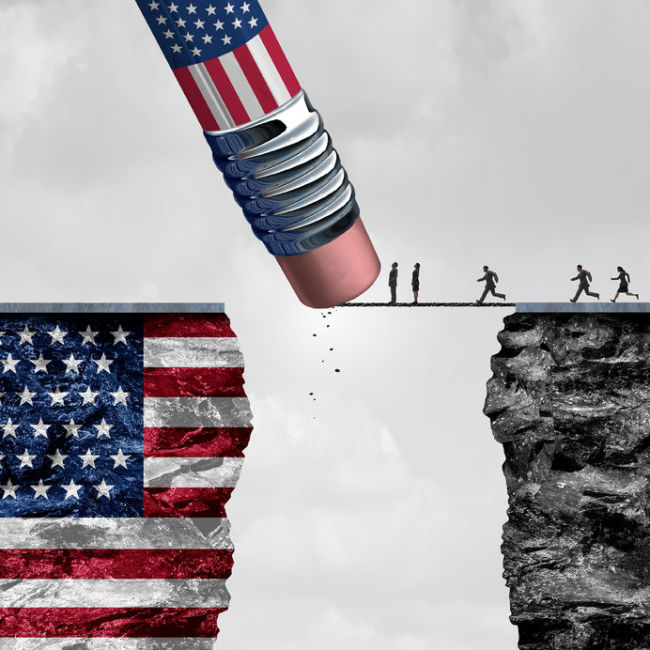With US President Donald Trump exuberating execution of controversial policies in the first two weeks in office, his “America First” goal would hurt emerging markets including South Korea, financial service company Nomura said in a report published on Friday.
Rising US trade protectionism, tougher immigration rules and a reassessment of US foreign policy positions, which seem to be at the heart of President Trump’s “America First” goal, would make emerging markets more vulnerable than developed markets, Nomura Holdings Inc. said.
 |
(123rf) |
“Emerging markets, with its trade-orientated economies and delicate geopolitics, are much more exposed ... than developed markets,” it said.
Tighter immigration policies and trade protectionism could lead to high wages and higher import prices and ultimately high inflation. This could result in faster-than-expected Fed hikes and further US dollar appreciation, the report said. A faster Fed rate hike and a strengthening greenback would expose the emerging markets to capital outflows and credit defaults, it added.
With weak fundamentals, South Korea would be one of the most vulnerable countries to the Trump risks, it said. “(South Korea’s) large current account surplus is a symptom of demographics, high household debt; high political uncertainty, very exposed to Trump, little fiscal space,” Nomura said.
The report said the South Korean economy’s position is weak as the combination of elevated household debt and an aging population is curbing private consumption and a number of manufacturing sectors, such as shipping and shipbuilding, are struggling with overcapacity. It added that a potential early presidential election after domestic political scandals further increase uncertainty, which is negative for the business environment.
Nomura said among 23 emerging markets Mexico and Turkey are likely to be hit hardest by Trump’s protectionism polices, while Russia would be the only country that benefits from the Trumpnomics.
Fitch Ratings also warned that a US shift toward trade protectionism negatively affect emerging economies in the Asia Pacific region.
Fitch sees that possible measures taken by the US under the Trump administration would be met by counter measures by China, including tariffs on US imports.
A trade war would have adverse spillovers for the Asia Pacific economies, particularly those that are closely connected to regional supply chains and that are most dependent on exports, Fitch said.
By Park Ga-young (
gypark@heraldcorp.com)








![[Today’s K-pop] Blackpink’s Jennie, Lisa invited to Coachella as solo acts](http://res.heraldm.com/phpwas/restmb_idxmake.php?idx=644&simg=/content/image/2024/11/21/20241121050099_0.jpg)